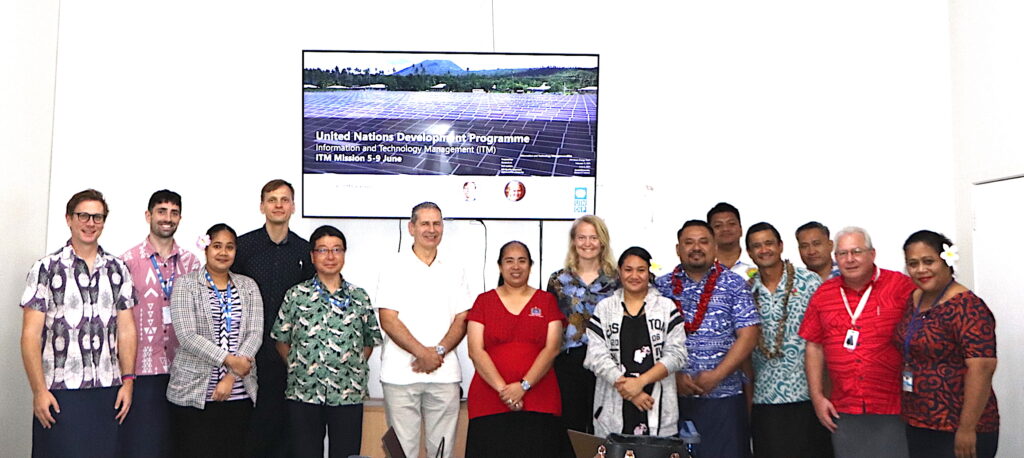

Apia, SAMOA – A UN Development Progamme project exploring the possibility of using electric vehicles and vessels to transform transportation in Samoa is now underway.
The Climate Action Pathways for Island Transport (CAP-IT): Accelerating the Decarbonization of Samoa’s Land and Maritime Transport Sectors’ Project, will help speed up Samoa’s climate change mitigation efforts by transitioning the country’s land and maritime transport sectors away from heavy reliance on fossil fuels.
The project, funded by Japan, began this month with a visit from renewable energy experts of the UN Information and Technology Management Department in Copenhagen. The ITM team is providing technical support related to electric vehicles (EV), EV charging infrastructure, and outboard motors.
The team met with key local stakeholders from the Government of Samoa and the private sector to conduct Green Energy Preliminary Site Surveys (GEPSS) in locations that will be earmarked for electric vehicles and charging stations.
The visit looked into the current EV fleet and charging infrastructure deployed by the Electric Power Corporation (EPC) and discussed connecting additional charging stations to the electricity grid. Interviews were carried out with vehicle service centers, importers, and dealerships to understand their readiness for importing and servicing EVs.

The team also visited the Samoa Recycling and Waste Management facility to learn about the logistics of handling discarded batteries and electronic waste. Meetings were also conducted with owners of Samoa’s small fishing fleet about entry points for battery charging or swapping, and to gather information on low-carbon maritime transport.
In the long term, the project will help Samoa keep in step with global developments in the transport sector and lead to other economic and environmental benefits such as better air quality, lower fuel costs, and a reduction in noise pollution.
“Transitioning from petrol to EVs would decrease Samoa’s reliance on imported fossil fuels, making the country more energy independent and resilient in the face of fluctuating oil prices.
Moreover, the adoption of EVs would improve air quality on the island, leading to cleaner and healthier living conditions for both residents and tourists,” said Verena Linneweber, Officer-in-Charge, UNDP.
The CAP-IT project is part of the Japan-funded regional project, ‘Promoting Green Transformation in the Pacific Region towards Net-zero and Climate-Resilient Development’, that is also supporting Papua New Guinea, Timor-Leste and Vanuatu in achieving their green transformation ambitions for a more inclusive, climate-resilient future.
The US$36.8 million regional project, of which US$15.5 million has been allocated for Samoa, is scheduled to be completed in March 2025.
The project is implemented by UNDP in partnership with various local stakeholders.
A maritime expert will visit in August to conduct a feasibility study for Samoa on low-carbon
maritime transport.